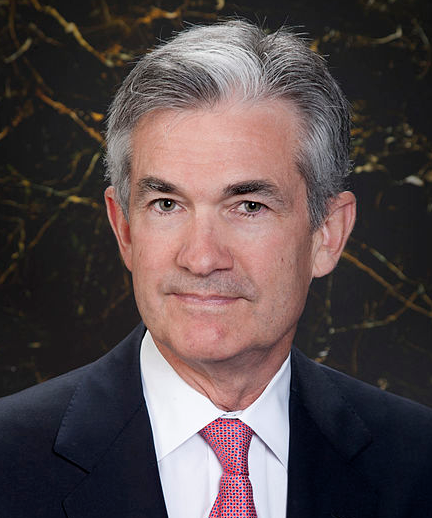
I have a new piece in the Washington Post, entitled “Trump wants a non-economist to lead the Fed. That could be dangerous”:
Consider this recent comment by Powell: “In contrast, the [Federal Open Market Committee’s] easing of monetary policy increased over time as the longer-term economic effects of the crisis gradually became clear. From 2007 through 2013, the FOMC added ever greater support for the economy.”
At first glance, that looks plausible. The federal funds rate — that is, the interest rate targeted by the Fed that banks charge each other for loans — fell from 5.25 percent in July 2007 to 2 percent in May 2008. Non-economists might see this as a policy by the Fed of easy money. But in fact, policy was getting much tighter during that time. Rates did not fall because of anything the Fed did; indeed, the Fed did not inject any new money into the economy over that 10-month period. Rather rates fell because the economy was weakening rapidly during the financial crisis. The Fed failed to cut its interest rate target fast enough to reflect this weakness, and hence we tipped into recession.
The last non-economist to serve as Fed chair was G. William Miller. His performance during the Carter administration was so poor that he was replaced after 17 months. Interestingly, his problems were quite similar to what we experienced during the financial crisis, but in the opposite direction. Miller thought that to fight the high inflation of the time it was enough to keep interest rates high. But rates were high because of inflation. His replacement, Paul Volcker, had a much deeper understanding of monetary economics. He understood that the Fed needed to tighten the money supply to get inflation under control, even if that meant temporarily ignoring interest rates.
I also say that I expect that Powell will do a good job for the foreseeable future. My concern is what happens if there is a crisis—will he have the expertise required to provide the leadership that we would need? Hopefully he won’t be tested, and NGDP will continue to grow at roughly 4% per year.
Read the whole thing.

READER COMMENTS
Steve F
Nov 2 2017 at 10:13pm
Given that the last four Fed chairs have had a “deep understanding of monetary policy”, yet Bernanke couldn’t tell the difference between tight and loose policy and you’ve been pointing out the utter failures of economists on understanding monetary policy since 2009, I really have no idea what to think regarding Fed appointments. Bernanke was supposed to be among the most expert appointments ever, yet he made elementary mistakes. Maybe a good Fed chair is somebody who may not be an expert on policy but is an expert at not making stupid mistakes like the so many macroeconomists have been making for years now.
Scott Sumner
Nov 2 2017 at 11:10pm
Steve, I think it’s a mistake to assume that Fed policy during the Bernanke period 100% reflected his preferences. He was constantly having to compromise with people like Powell, who preferred even worse polices.
And yes, the past four Fed chairs have not been perfect, but how do they compare to G. William Miller?
Kenneth Duda
Nov 2 2017 at 11:30pm
LOL Steve F, I need that on my business card.
Kenneth Duda
Certified Expert
Department of Stupid Mistake Avoidance
Dan
Nov 3 2017 at 10:20am
Scott-
Perhaps you need the “correct” intellectual framework and force of personality to effectively push the FOMC where policy should go. Having PHD next to your name is not a necessary condition for the latter and perhaps a detriment.
As you know, Volcker wasn’t a PhD in econ. I would define him as a non-economist at the time. Your credentialism is showing..
Scott Sumner
Nov 3 2017 at 11:37pm
Dan, I think you need to reread my article. I said exactly the opposite of what you think I said. I never said the Fed chair needed a PhD, and specifically cited Volcker and Greenspan as people with expertise in monetary policy.
Comments are closed.